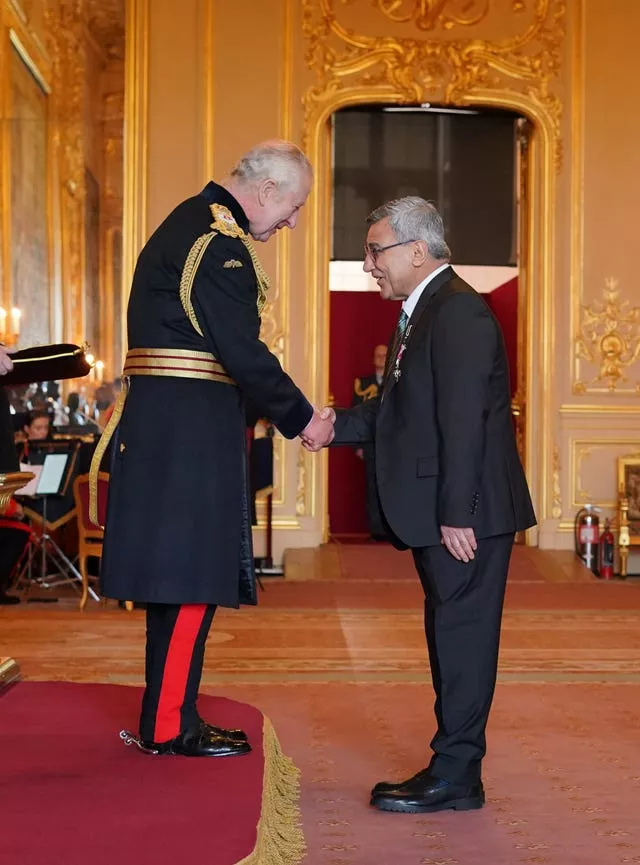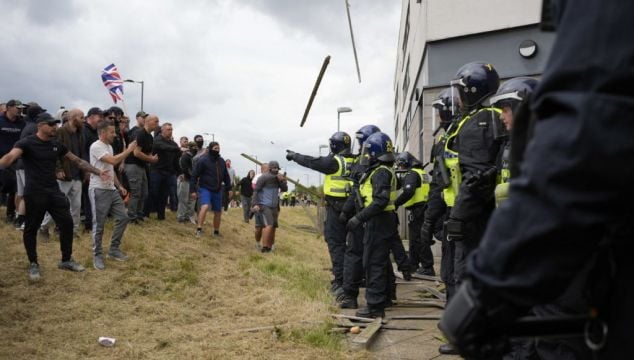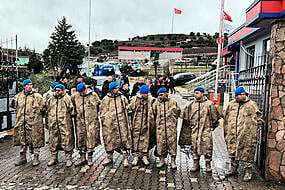An Afghan asylum seeker who was inside a hotel targeted by rioters said people are “traumatised” by what happened and described feeling “lost” when it comes to what his future might hold in the UK.
The 29-year-old was in the Holiday Inn Express in Rotherham when people smashed the windows of the building before starting fires.
Masked men hurled wood, chairs and bottles with some spraying fire extinguishers at police officers amid the 700-strong crowd, and at least 10 officers were injured, with one knocked unconscious.
The asylum seeker, who did not want to be identified amid concerns for his safety, said the trouble had been preceded a day earlier with people passing by the hotel and shouting “F*** you! Rwanda! Go to your country!”
The man, who had been in the hotel for two months while he awaits his asylum claim being processed, described the fear and panic when the attack began.
He said: “They entered from the back/kitchen to the dining area and broke the windows from the inside. From the inside they threw chairs and tables onto the police and were throwing other things at the police.
“And then they started the fire. People were really scared inside the hotel.”
One week on, and having been moved to another hotel, he said the fear had not subsided.
“I am pretty sure most of the people who were in the hotel are still in a kind of panic,” he said. “They are traumatised, they are not in a good situation.”
The man had been in the UK for a year and a half as a student, but applied for asylum earlier this year, feeling he would not be able to return to his home country due to the Taliban takeover.
Recalling his life before then, he said: “I had a great life back in Afghanistan. I was working with humanitarian organisations, and in the development sector. I was also working as a volunteer.”
On the wider issue of migration, he described how having to leave your own country is not an easy thing to go through, adding: “Forced migration is not a good and desirable experience”.
But the man, who has been supported by the Refugee Council, said he had hope for a positive new life in the UK before the riots broke out.
His experience in the UK had been a “very happy” one where he felt safe, he said, adding: “But now I don’t go outside. I don’t want to explore new places. I feel very sad and frustrated. I feel very lost now.”

Separately, a refugee from Southern Africa who is now living in the Midlands said he feels “unwelcome and unwanted” as a result of the violence.
The man, aged in his early 40s and who did not want to be named, said he had fled persecution and had been enjoying living “freely as a member of the LGBTQI community” in the UK.
He said police had spoken to him earlier this week about a previously-friendly neighbour who is suspected of having been a key organiser in the riots, leaving him feeling “you don’t know who is your enemy and everyone is vulnerable”.
He said he had felt “hope and a lot of assurance having the British community standing in solidarity with everyone affected by the riots” in the counter protests on Wednesday.
Meanwhile, Nooralhaq Nasimi, director of the Afghanistan and Central Asian Association (ACAA), said the people his organisation supports are feeling “anxious, scared and are worried for what might happen in the future”.
Mr Nasimi arrived in the UK in 1999 from Afghanistan as a refugee, and said he has never seen violence here “on this large scale” in his 25 years in Britain.
The community leader, who was recognised in the 2023 honours list for services to refugees, said he believes those behind the violence were “a very small minority” and praised the “huge support of the counter-protests”.
He told the PA news agency: “I feel very pleased to see so many British people go out into the streets to support the multiculturalism of Britain, to support those who are from BME (black and minority ethnic) groups, from Muslim communities, and express their criticism against the far-right, telling the public that those people who are behind this violence, they are not representing British democracy or culture.”
He said he hopes to see more “partnership” between the Home Office, the police and grassroots organisations working with asylum seekers and refugees for increased “community cohesion” in the future.







